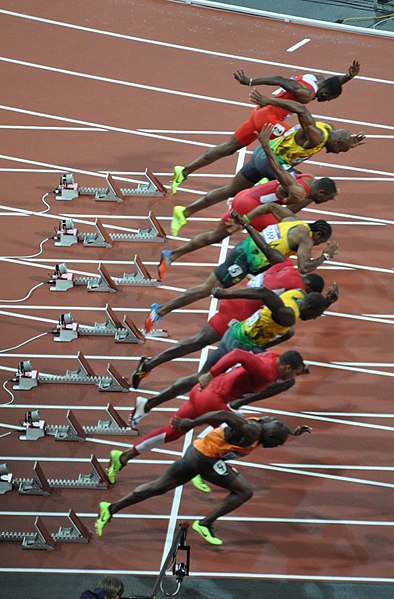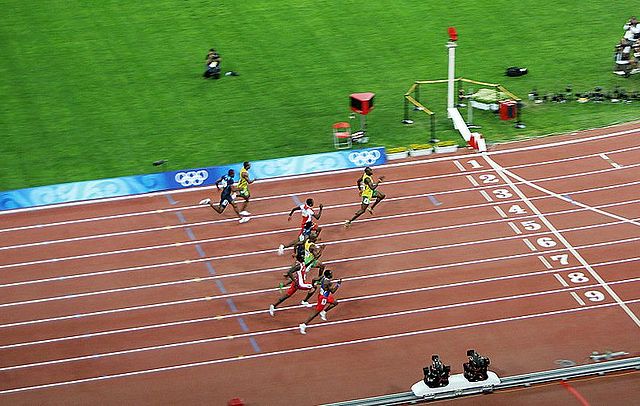Athletics at the 1896 Summer Olympics – Men's 100 metres
The first heat of the men's 100 metres race was the first event run at the modern Olympics, on 6 April 1896. The event consisted of 3 heats and a final, held on 10 April. The 100 metres was the shortest race on the Athletics at the 1896 Summer Olympics programme. 15 athletes from 8 nations competed. The event was won by Thomas Burke of the United States. Fritz Hofmann of Germany took second, with Hungarian Alajos Szokolyi and American Francis Lane tying for third. These competitors are recognized as gold, silver, and bronze medalists by the International Olympic Committee, though that award system had not yet been implemented in 1896.
Artist's rendering of the start of the 100 metres final
The 100 metres, or 100-meter dash, is a sprint race in track and field competitions. The shortest common outdoor running distance, the 100-meter (109.36 yd) dash is one of the most popular and prestigious events in the sport of athletics. It has been contested at the Summer Olympics since 1896 for men and since 1928 for women. The inaugural World Championships were in 1983.
Start of the men's 100 metres final at the 2012 Olympic Games in London
Start (green) and end (red) points of a 100 metre race, marked on a running track
Male sprinters await the starter's instructions
Usain Bolt breaking the world and Olympic records at the 2008 Beijing Olympics





